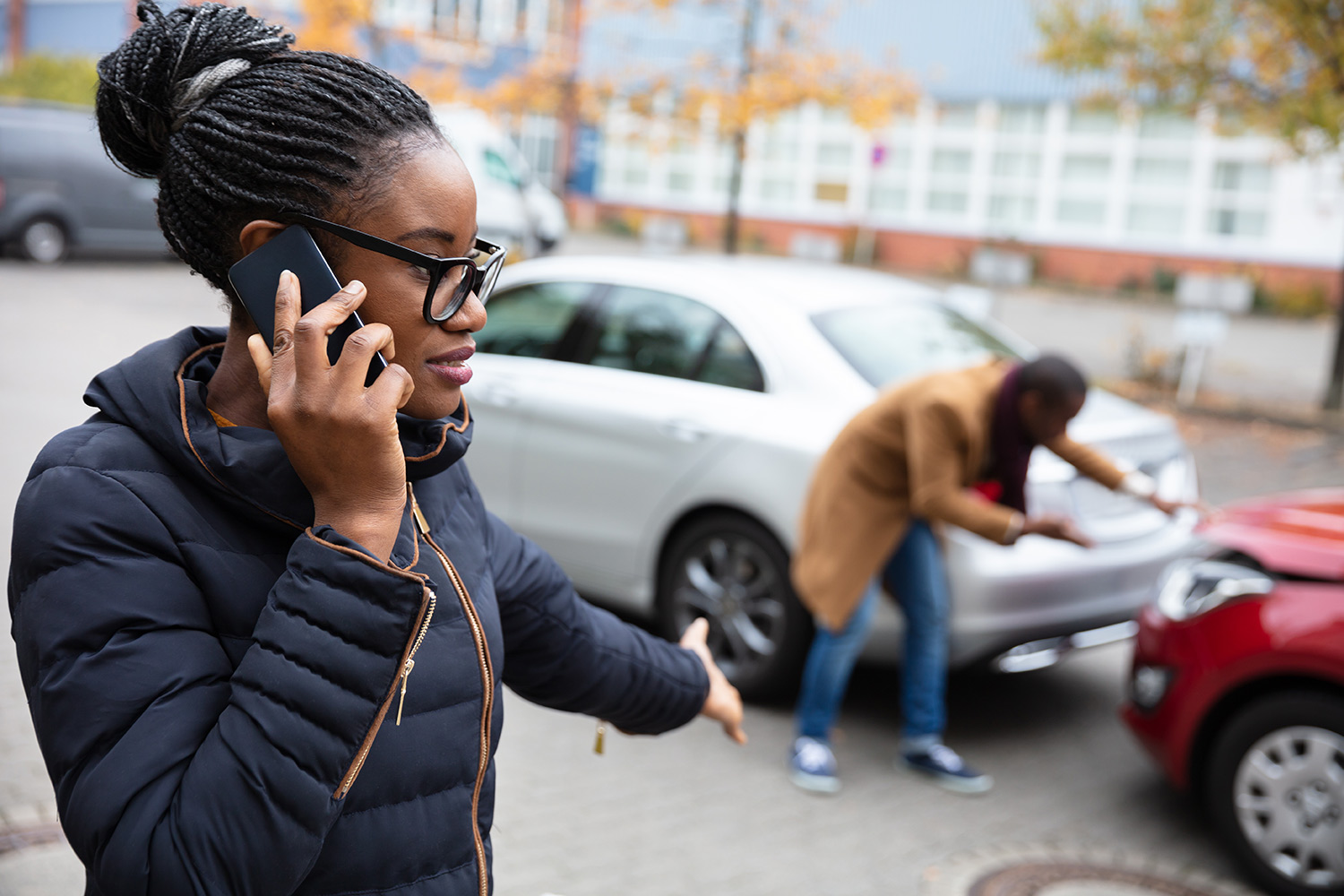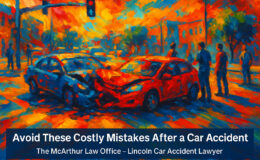Very often, the most difficult part of handling a case – whether it be a criminal charge, contested divorce proceedings, or a personal injury claim – is dealing with and overcoming words that a client has said or statements they have made prior to retaining a lawyer. Words that are spoken in the heat of the moment, out of emotion, frustration, quickly, or without reflection, can do serious damage to an otherwise legitimate claim, whether those words are spoken to law enforcement, opposing counsel, an insurance adjuster, or a representative of an adverse party.
Because accidents by their very nature are sudden and unforeseen, people injured in accidents are not prepared to deal with the stress of making statements which go to the heart of the case. If you are involved in an auto collision you should have a plan for making statements to witnesses, police officers, or insurance agents. Remember, lack of experience and planning is something which an adjusters can use against the unsuspecting public. The following is a list of guidelines to follow when faced with questions concerning an accident.
At the scene
Imagine this: You have just been rear-ended by a driver who was driving too fast for the conditions, was looking at a cell phone, and was tired from being up late the night before. You didn’t see the car coming, and the impact has you shaken. In the minutes following the impact, adrenaline is running through your body, you are concerned with the safety of your children, the condition of your car, and the shock of the whole situation. You are not your usual calm self. The police have just arrived, you have to call your spouse, your boss, and your children’s school. The last thing on your mind is the legal ramifications of the comments you might say in the next few minutes. But, the first five minutes after impact could significantly affect your case.
The following are a list of some basic things to say and to NOT say at the scene.
- Do ask the other driver if he or she is okay.
- Do ask witnesses for their names and phone numbers.
- Do request documentation. If the other driver makes any admissions, apologizes, or admits fault in any way, be sure to tell the police while it is fresh in your mind, and make sure it is included in the officer’s notes.
- Do NOT say “I’m sorry,” “I didn’t see you,” “I feel bad,” “I thought I could make it,” “It was my fault,” or make any other admission of regret or responsibility.
- Do NOT say “I am fine,” “I don’t need to go to the hospital/doctor,” “I’m not hurt,” or similar statements indicating you have no injuries. Often times, pain or injury does not become apparent immediately when you are having an adrenaline rush. It is common for symptoms to appear a day or two after the collision, much like having sore muscles the day after heavy lifting, playing sports, etc. Even low speed impacts can lead to painful injuries. It is a good idea to schedule an appointment with a doctor shortly following a collision to be certain that you have not been injured.
- Do NOT use phrases such as “I think” or “maybe” or “possibly,” which gives the impression that you are uncertain or that your version of the collision is not reliable.
- Do NOT exaggerate. Do NOT minimize.
Talking with the liability adjuster
Repeat after me: “The adjuster is not my friend! The adjuster is not my friend! The adjuster is not my friend!” Insurance adjusters are trained professionals, working for a large corporation, which has a duty to make as much money as possible for its shareholders. The way that insurance companies make money is by collecting premiums and paying as little as possible on claims. The adjuster’s loyalty is to the insurance company, not to you. Do not think for one minute that the pleasant voice on the line is prioritizing your best interests.
It is very common for adjusters to make contact with injured persons within a day or two after the collision, before the individual has had an opportunity to visit a doctor, get an estimate on the vehicle, consult with an attorney, or take stock of what this collision will mean for his or her life over the next few months. When the adjuster reaches out to the injured person with a phone call, you can be certain that the adjuster has prepared, and brings a lot of experience in handling such conversations, obtaining admissions against the injured person’s interest, deflecting statements which are against the insurance company’s interests, and directing the conversation down a path that favors the insurance company.
There is very little upside to talking with the adjuster handling the injury portion of the claim. Therefore, the guidelines as to what to say and what not to say are pretty simple.
- Do NOT agree to a recorded statement.
- Do NOT discuss your injuries or lack thereof, or tell the adjuster that you feel fine, or that you are “okay.”
- Do NOT entertain any offers of settlement until you have had a chance to see a doctor, consult with an attorney, and fully evaluate the extent of any injuries.
- Do NOT tell the adjuster who your doctors are.
- Do NOT give the adjuster a statement as to how the accident happened.
Being in an accident can be scary and disorienting. You may want to keep a copy of these recommended tips next to your registration information in your car. That way, if you’re ever in an accident, they’ll be there as a convenient reference.
And be sure to call our office at 402-421-8333 for a free consultation or if you have any questions. We work on contingency, which means that if we take your case we only get paid if your case is successful and you receive a monetary award or recover funds. We even pay all fees and costs associated with your case up front, so there are no initial out-of-pocket costs to you!






